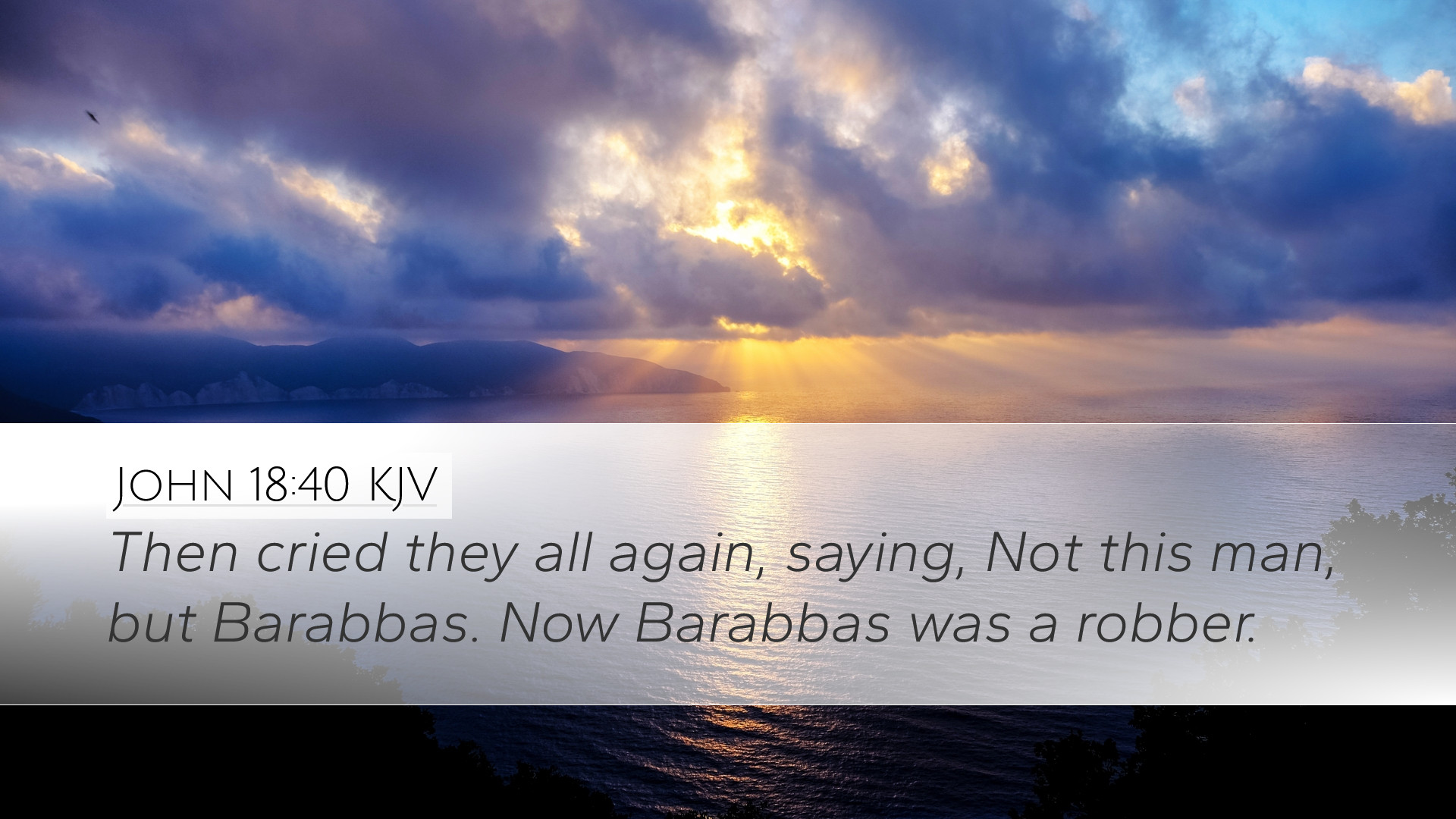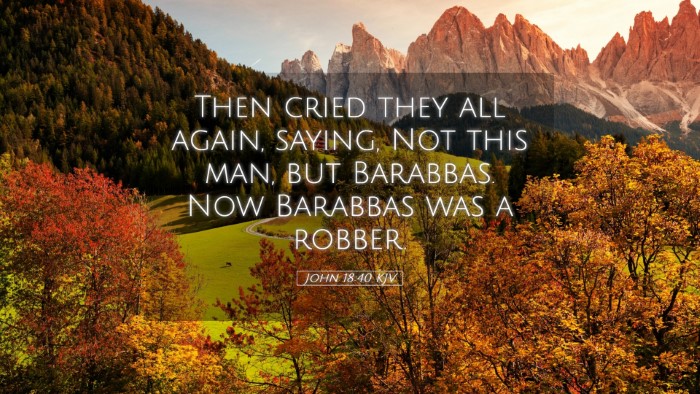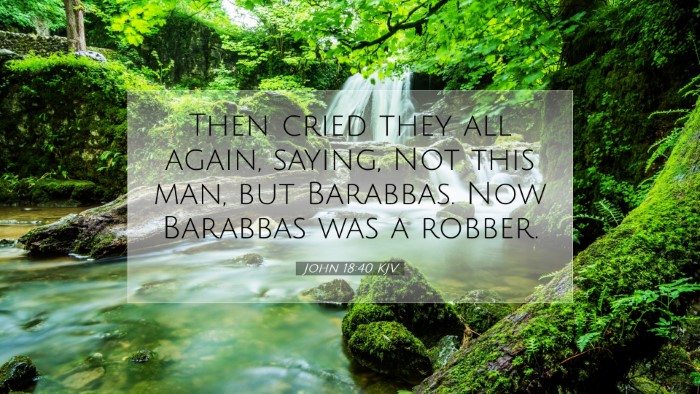Commentary on John 18:40
John 18:40 states: "Then cried they all again, saying, Not this man, but Barabbas. Now Barabbas was a robber."
Contextual Overview
This verse occurs during the trial of Jesus before Pilate, a pivotal moment leading to the crucifixion. The choice placed before the crowd highlights the stark contrast between Jesus, the innocent Lamb of God, and Barabbas, a notorious criminal. This decision sets the stage for understanding the nature of sin and redemption.
Insights from Matthew Henry
The Nature of the Crowd: Matthew Henry notes that the outcry of the crowd reveals a profound moral depravity. These same individuals who earlier welcomed Jesus as a Messiah have now chosen a criminal over Him. This demonstrates how quickly public opinion can shift and how susceptible the human heart is to societal influences.
The Character of Barabbas: According to Henry, Barabbas represents a clear example of sin and rebellion. His selection by the populace serves as a chilling reminder of humanity's fallen nature. Barabbas, described as a robber, symbolizes those opposed to divine righteousness and the righteous standard of Jesus.
Insights from Albert Barnes
The Choice Between Two Figures: Albert Barnes emphasizes the significant contrast presented in this verse. The people are presented with a choice between Barabbas, a representation of lawlessness, and Jesus, who embodies truth, justice, and mercy. This choice reflects the choice all humanity faces: to align with worldly desires (Barabbas) or divine truth (Jesus).
Public Sentiment and Leadership: Barnes critiques the leadership of the Jewish authorities, who manipulated public sentiment against Jesus. The verses show how easily the multitudes can be swayed by their leaders, a point that resonates with historical and contemporary examples of political and social manipulation.
Insights from Adam Clarke
The Role of Fulfillment of Prophecy: Adam Clarke remarks on the fulfillment of Scripture evident in this choice. The narrative is a part of the larger divine plan foreseen by God, fulfilling prophecies regarding the Messiah. The choice of Barabbas serves to underline the rejection of God’s chosen one, highlighting the resilience of human sinfulness even in the face of divine prophecy.
Spiritual Implications: Clarke argues that the choice of Barabbas over Jesus is emblematic of the choices faced by humanity throughout history. This underscores the importance of recognizing our individual choices in the light of eternal implications. The preference for Barabbas indicates the innate desire of man to choose sin over salvation without divine intervention.
Theological Reflection
This moment in John's Gospel is critical for understanding the nature of sin and salvation. The rejection of Jesus signifies not only a historical event but also a theological truth about the human condition. The preference for Barabbas can be viewed as a mirror reflecting the rebellion in all hearts apart from grace.
Practical Application for Today
Pastoral Context: For pastors, John 18:40 serves as a poignant reminder of their responsibility to guide their congregations in discerning truth amid societal pressures. The ease with which public opinion swayed from acceptance to rejection of Jesus exemplifies the need for diligent teaching and discipleship.
For Theologians and Scholars: This verse invites critical analysis of human nature as depicted in biblical narratives. Theologically, it challenges scholars to consider the implications of choice—how we evaluate what is presented to us and the consequences of our decisions in relation to God's will and purpose.
Concluding Thoughts
John 18:40, while seemingly a simple choice between two men, encapsulates deep theological themes of rejection, choice, and the nature of sin. Through the insights of Matthew Henry, Albert Barnes, and Adam Clarke, this passage is illuminated, revealing the profound implications it holds for individuals and communities seeking to walk in truth. As we reflect on this scripture, may we continually strive to choose Christ over the Barabbas-like temptations of our modern world.


